At Mali Rising, we are continually inspired by the stories of women in our communities who have found new opportunities to help their daughters through the Mothers' Loan Fund. One such woman is Fatoumata Doumbia, a mother from the village of Nieguenkoro, who has seen her life transformed thanks to this initiative.
A Mother-Daughter Debate
Educating a child involves more than the dedication of that child – it takes everyone’s help. This is way the Girls’ Project works hard to engage the parents – and especially the mothers of our girls – in the drive to educate girls. This year, I’ve had several meetings with female leaders in our partner villages to solicit their help in organizing mothers’ support for girls’ education in the villages. This month, we brought the mothers and their daughters together to discuss girls’ education.
Mothers Standing Up for Girls
By Hindaty Traore, Girls’ Project Manager
It's a Friday morning under a blazing sun in the village of Sankama – home to Judge Memorial Middle School. A group of more than forty people sitting in the school’s Grade 8 classroom with me sat right in front. In front of the crowd, I lead a meeting with the mothers of students in Sankama, a member of the school management committee, and the school principal.
All families are committed to the academic success of their children. However, this success depends on the dialogue between school staff and parents as well as their involvement in supporting their children's education.
To be able to monitor their children's schooling, parents must be well informed of the results, but also of their child's academic behavior. All of these rights were reminded to the mothers during the meeting.
The involvement of parents is very important in the education of girls, especially that of mothers. In Mali Rising Foundation partner villages, we have noticed that parents are less interested in monitoring their children. Everyone sends their child to school but do not know that they have a role to play for the success of their child.
To help change this dynamic, we decided to organize meetings with the women each village to discuss the importance of their involvement in the education of their daughters and how they can do it. We also explained the importance of girls' success for families and the country as a whole. Through the various interventions, we found that mothers do not go to school to know the progress of their daughters, do not follow them at home, and give the girls a lot of domestic work which limits their ability to study.
In our partner villages, women's modest incomes do not allow them to hire someone to help them with housework, so girls help their mothers every day. This means that girls devote less time to schoolwork than school. They have less time to learn and do their homework and this negatively affects their school performance, sometimes causing dismissal or dropping out.
Through our various discussions, the women learned how to help her daughters at home after school, how to go to school each month to check on her child's progress, how to lighten the housework to give time to study and learn.
For the best functioning of the involvement of the mothers of students, we have agreed to hold two meetings a year for the women to discuss their issues and problems. In between these meetings, the women leaders in each village will also remind the mothers of students to follow and give time to their daughters at home, to check in with the school on their daughters’ progress, and other basic strategies.
Sali Diawara's two daughters study at Judge Memorial Middle School in Sankama. Sali says she is involved in the education of her daughters. She explains: “I don’t give my daughters chores when they have to go to school. They only help me on weekends. I would also like them to take private lessons but unfortunately I don’t have enough means.”
Sali herself had the chance to go to school. But she could not continue her schooling because of an early marriage, and she wants her daughters to have a different fate from hers. Thanks to her commitment, her daughters obtain good results -- they are always among the best in their classes. This story encouraged other women at the meeting to do like Sali so that their daughters could succeed too.
The teaching staff of the school also want to help reduce the household responsibilities of girls. Ibrahim Diarra is the principal of Judge Memorial Middle School in Samkama. With his colleagues, they want to organize at least one meeting with parents and traditional and religious leaders to encourage them to support girls' education.
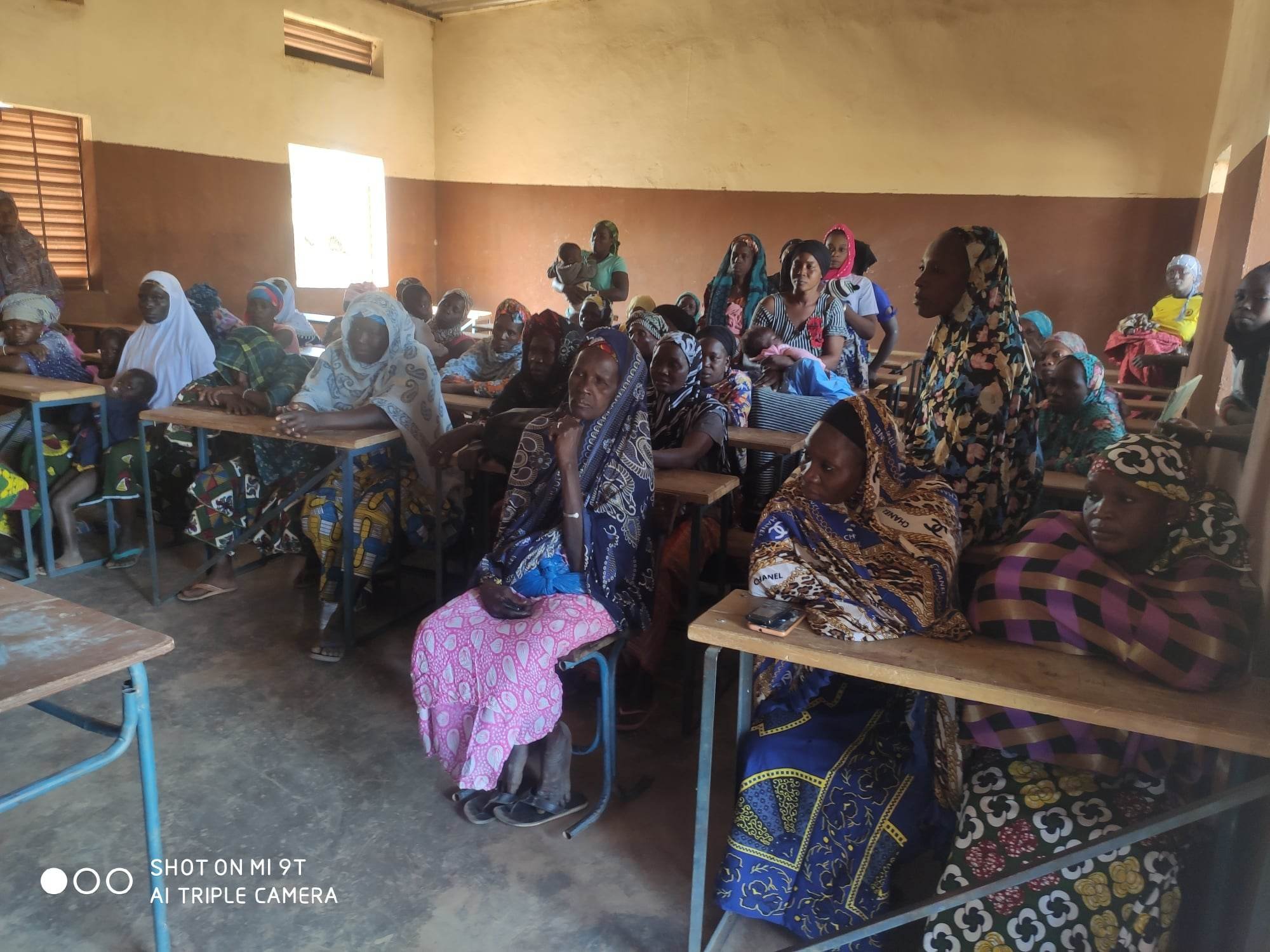
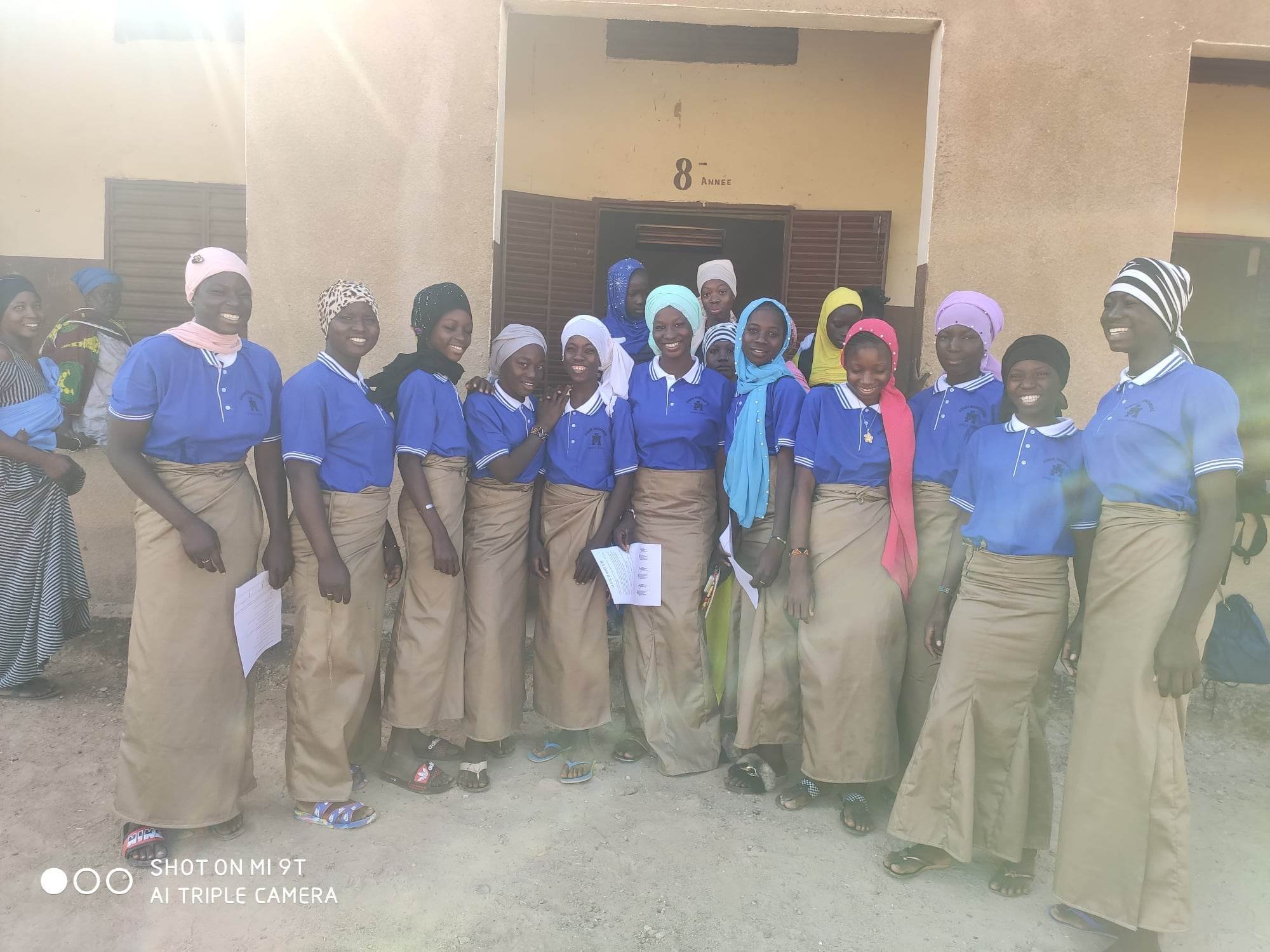
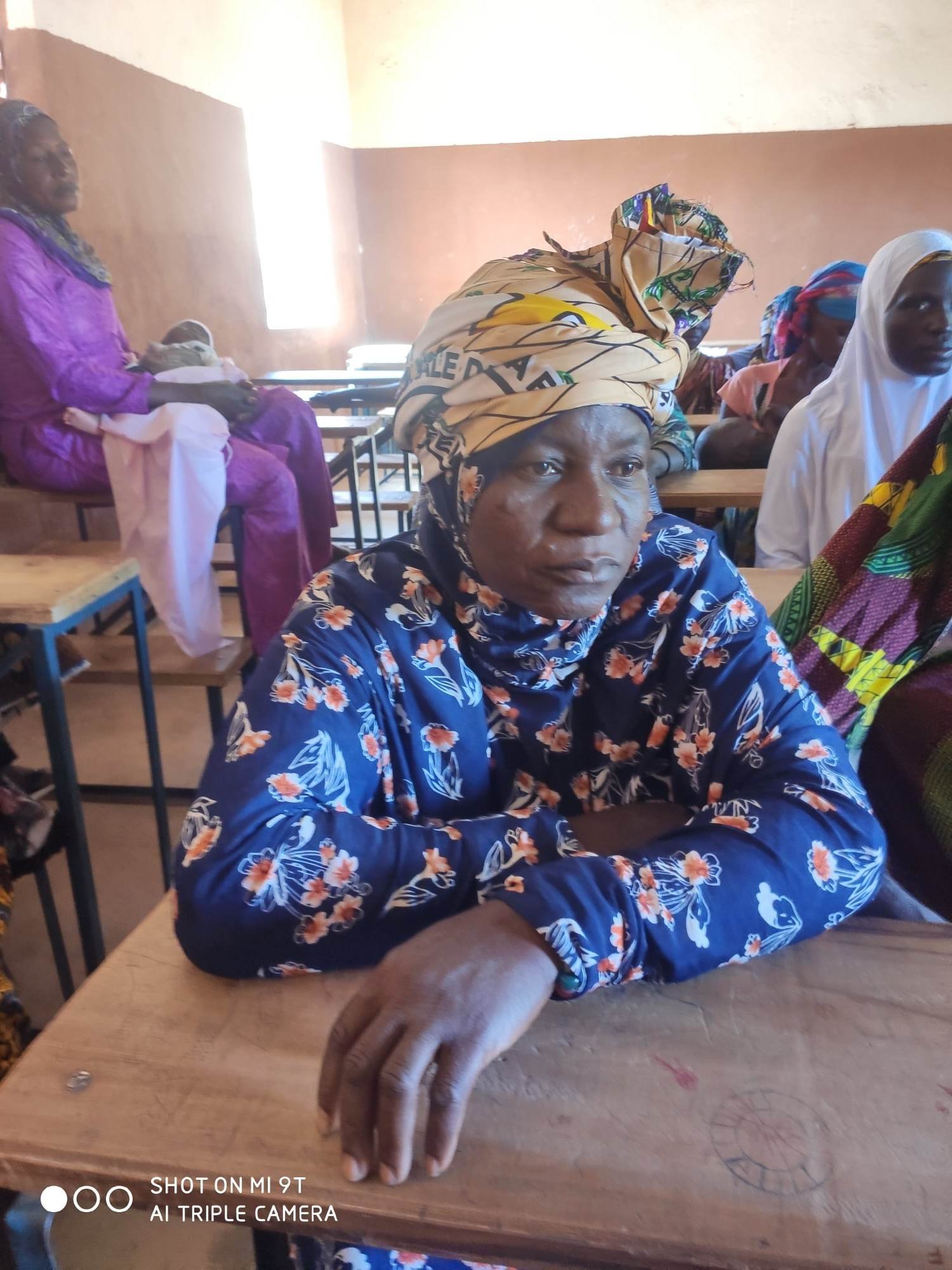
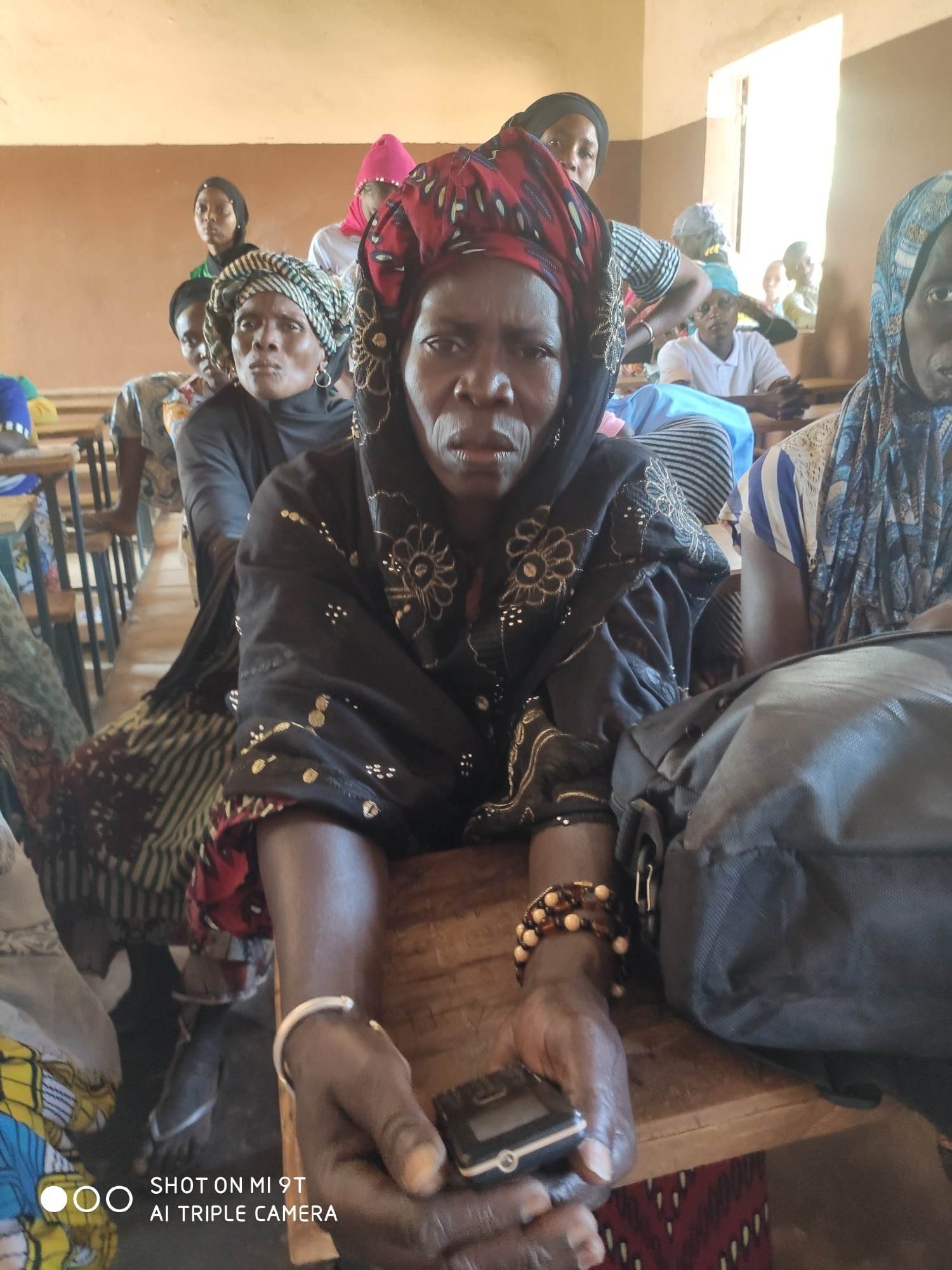
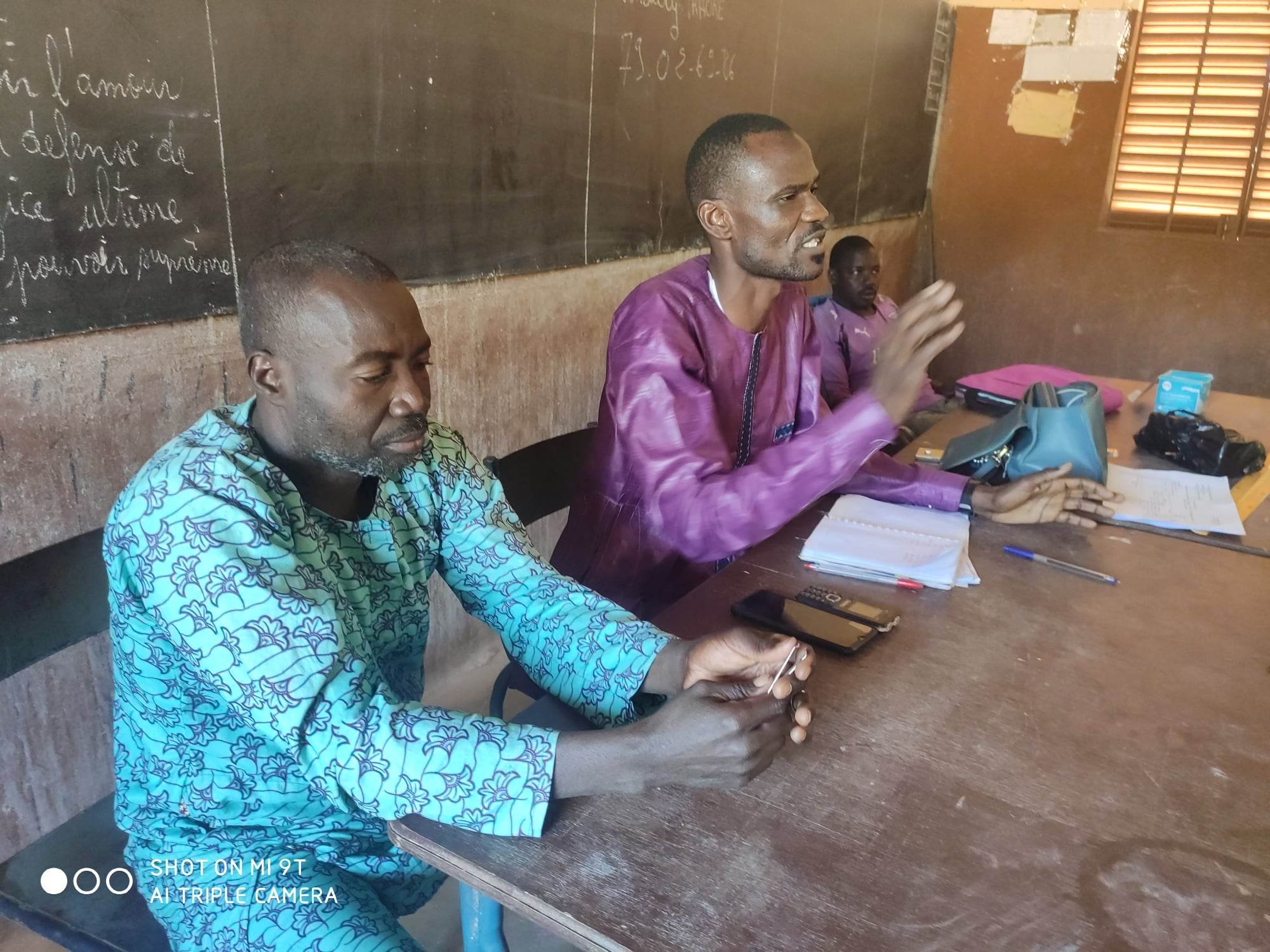
Mr. Diarra explains: “We will raise parents’ awareness of the need to reduce girls’ workload so that they have time to devote themselves to their studies. This is important for their academic success.”
Mah Coulibaly is a housewife in Sankama. She lives with her husband and children. They have two daughters at school. She says: “We don’t have enough resources. My daughters sell my wares. They also help me with other activities. I am aware that this affects their studies. But, I have no one else to help me. I would try to do everything possible to give them time to learn the lessons.”
I drew inspiration from my own story to raise awareness of how girls have more time for their studies when they don't need to spend too much time on household chores. I explained that I help the girls today because I was able to focus on my studies. We concluded our meeting with a short quote “When girls fail, the whole your community has failed, because it is your duty to ensure a better future for them.”
Celebrating the End of the Year With Our Girls
Our Girls’ Project works intensively in a group of villages for 3 years before moving on to a fresh set of villages. As this school year ended, we said goodbye to five intensive partner villages with big community celebrations. During these celebrations, several mothers of students testified about the success of their daughters thanks to the Girls’ Project..
How Two Moms Use the Mothers' Loan Fund
By Hindaty Traore, Girls’ Project Manager
This month, I checked in with a group of mothers who are using their entrepreneurial skills to make sure their daughters can attend middle school and build better lives for themselves.
The Cliff and Nita Bailey School in the little village of Beneko is one of the first schools where Mali Rising’s Girls’ Project was piloted. As part of the Project, the mothers of the village received a seed grant to set up what we call a Mothers’ Loan Fund. This Fund loans money to mothers for small businesses. The interest on those loans is pooled to fund school fees for the village girls in perpetuity.
Each village’s Mothers’ Loan Fund is run by the women of the village, and so sets up its own rules and systems. Given the large number of women in Beneko, the loans are distributed every 6 months. Each woman who receives a loan receives 5,000 FCFA. After six months each woman must bring 5000 FCFA plus interest -- which is 1000 FCFA.
Each woman uses her money differently to have her own benefit and interest after every six months. I wanted to share the stories of two women – Bintou Samake and Deniba Bagayoko.
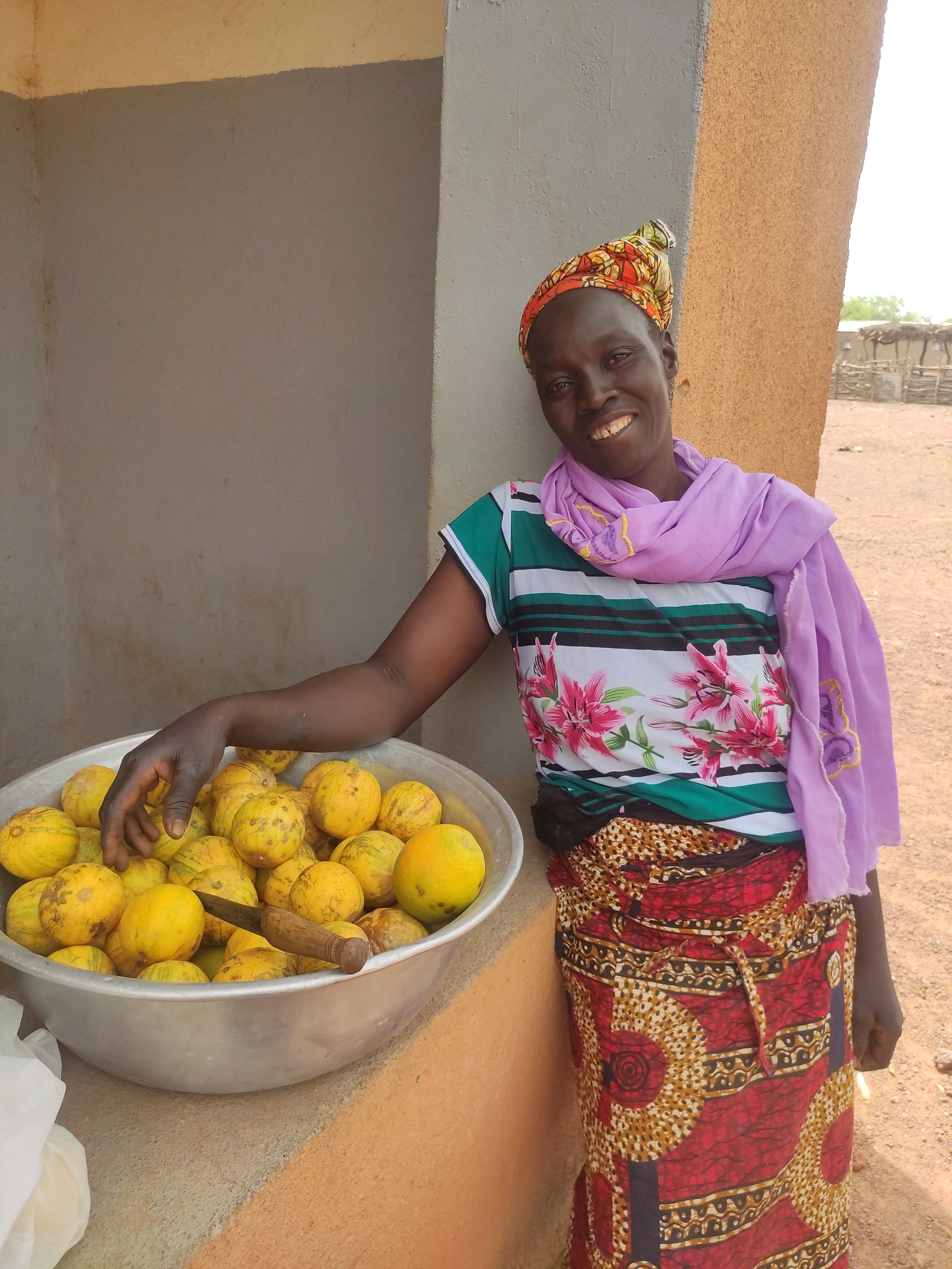
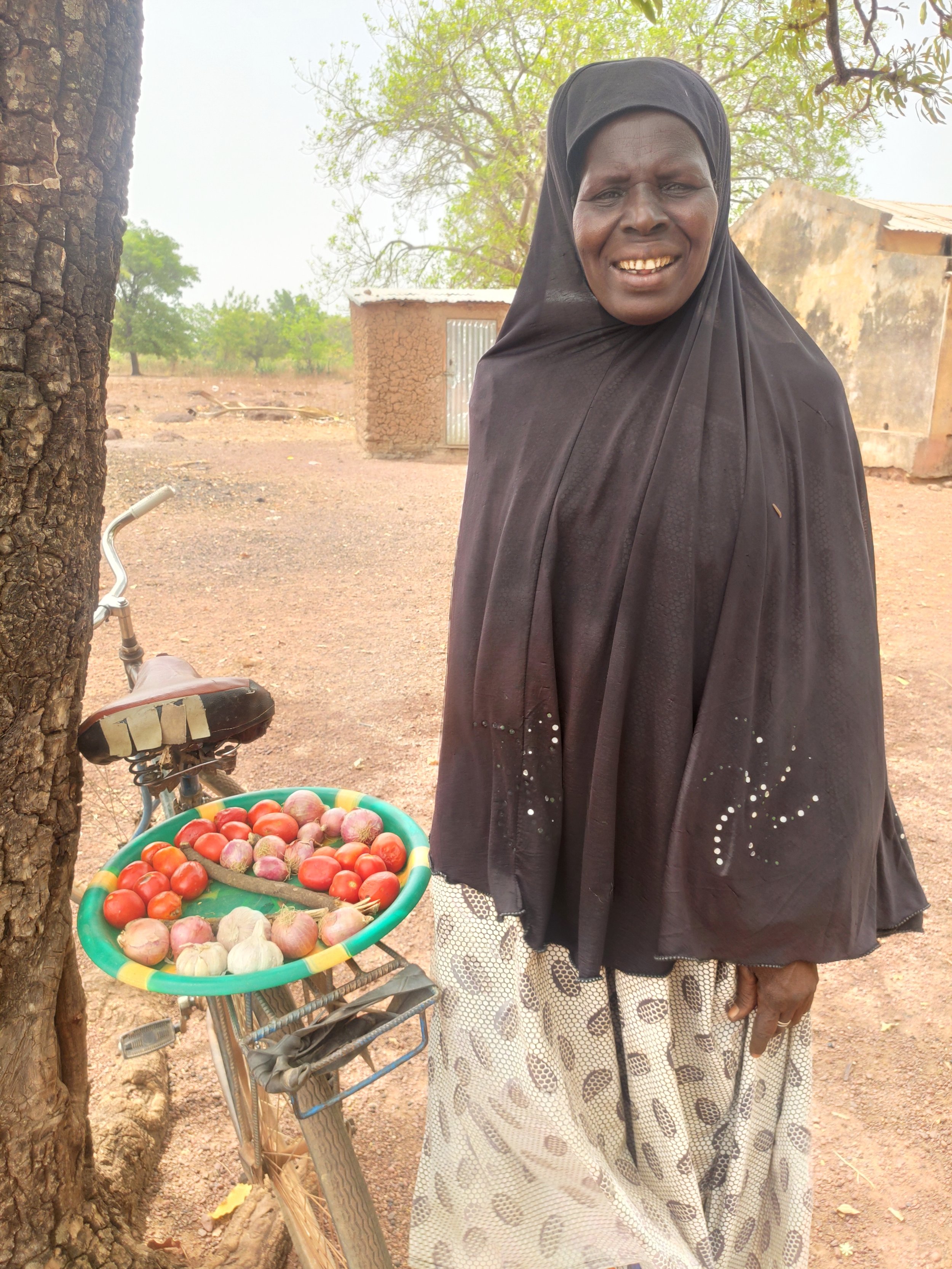
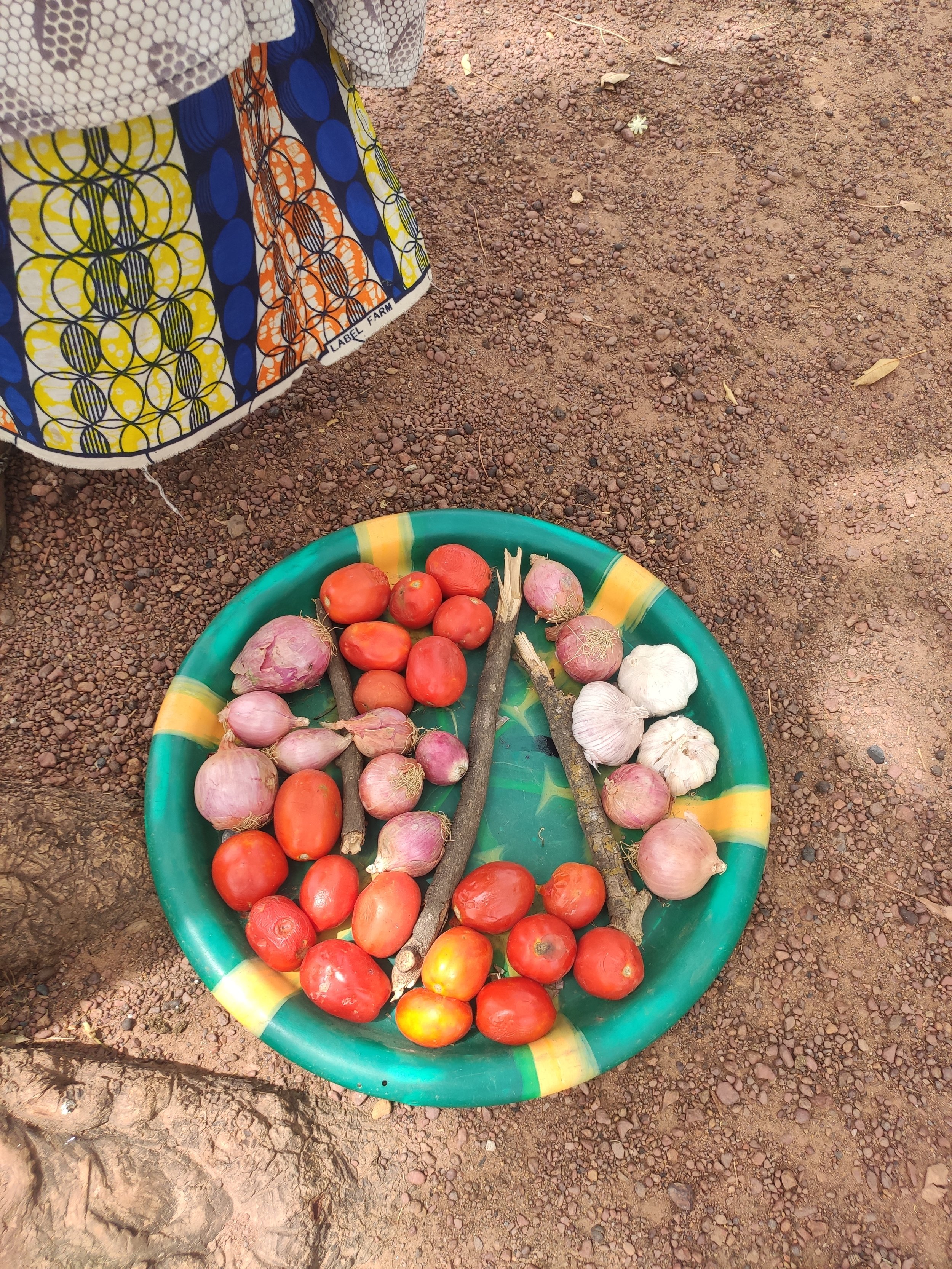
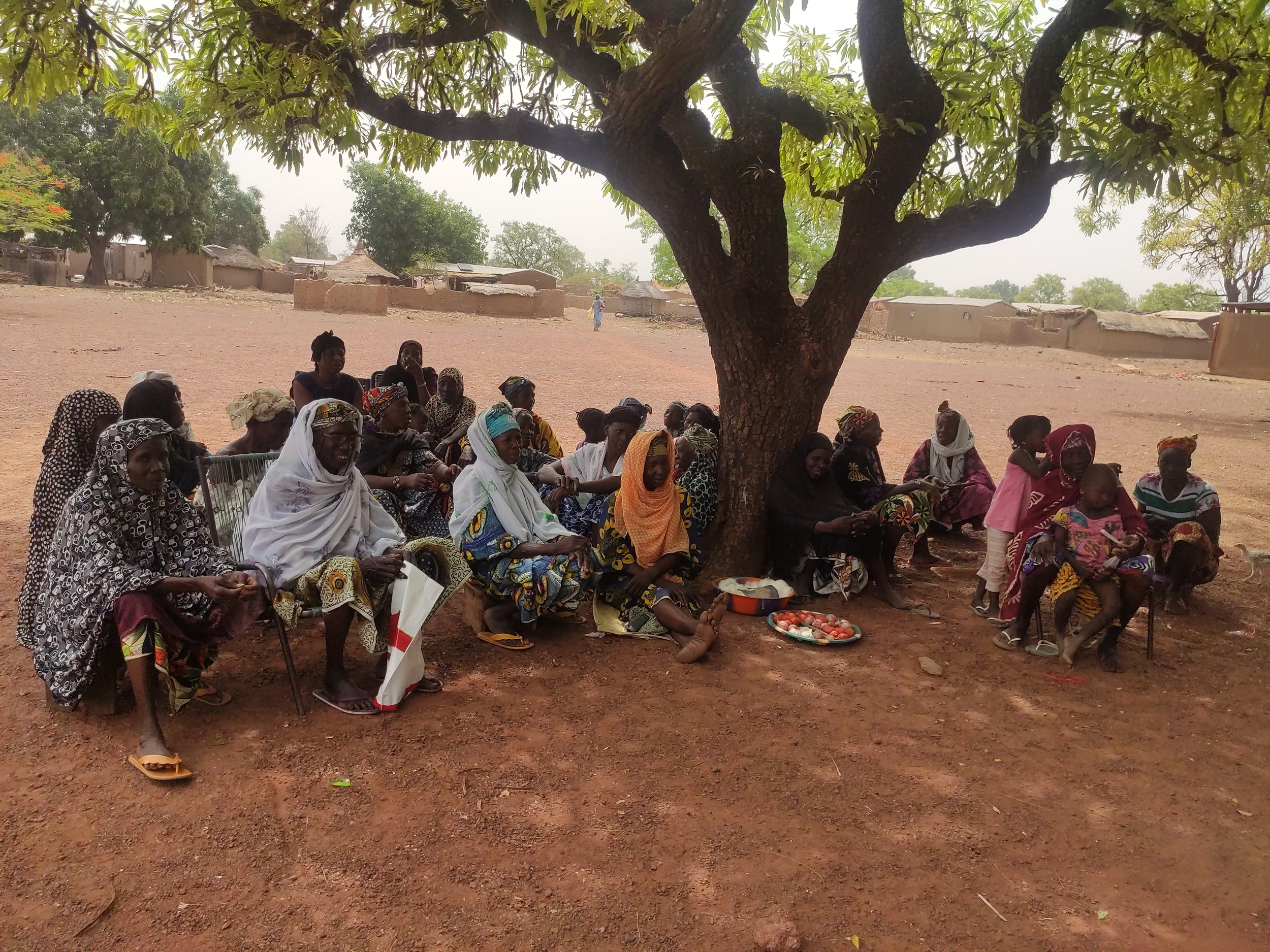
Bintou Samake’s loan
Bintou Samaké is the mother of 7 children, 5 of whom are currently in the middle school of Beneko. She was one of the beneficiaries of the first distribution from Beneko's Mothers’ Loan Fund.
When she received her loan, Bintou went by bike to get oranges from Famana, a village 10km from Beneko, to come back and sell them in Beneko. After selling her oranges she obtained 2500 FCFA as a profit. In six months, she was able to have a personal benefit of 30,000 FCFA. After six months, she returned the 5000 FCFA plus the interest of 1000 FCFA in the fund. “I sell oranges because a lot of people don't sell those here. That's why the profit is a bit high compared to other businesses in the village,” says Bintou.
Before the arrival of the project, Bintou found it difficult to pay the school fees of her five children. She saw her children expelled from school because of non-payment of school fees. She and her husband are farmers so they do not have enough resources. When the Girls’ Project Mothers’ Loan Fund came, the project paid for all the girls' school fees, which reduced her expenses. Bintou likes her side business, but she continues to farm and be a housewife.
Deniba Bagayoko’s loan
Deniba buys condiments such as tomatoes, onions, garlic, and concentrated tomatoes to sell in the village. The profit is not huge but it allows her to repay the money and interest from the Fund and still to have some extra money to set aside aside.
She also often buys cereals such as millet and maize when it is cheaper and keeps them until the price of these cereals is high, then she sells them. “The money that Mali Rising gave us helped me a lot, especially to pay the school fees for the girls because it is the women who pay the school fees for the girls but the women do not have the means to pay that. My daughter is married and her husband's parents do not want to pay her school fees. But thanks to the interest of the fund, she continues her studies,” exlplains Deniba.
Deniba Bagayoko’s last daughter in grade 9. Her daughter loves school but has failed the DEF graduation exam twice. Her daughter is married in another village 3 km from Beneko, and she has a 1-year-old child. Deniba says tat housework and the maintenance of the child prevent her from studying well.
However, Deniba takes care of her daughter’s child so that she can go to school. The daughter’s husband wants her to study but she is in the big family the household chores are enormous, so it is not at all easy. According to Deniba if there was no interest in the fund to pay her daughter's school fees, her studies would be finished because her in-laws refuse to pay. But because she utilized the Mothers’ Loan Fund through Mali Rising, they have not had difficulty paying school fees for the girls.
The women of Benkeo welcome the Mothers’ Loan Fund because it allows them to keep their daughters in school without fear of expulsion. We love to see the Funds succeed because there are just so many benefits – more girls in school, mothers that feel empowered to protect their daughters, and even a little “extra” money for the family home.
Mrs. Kone: A Mother Making a Difference for Girls
n Mali as in other African countries, historically few women went to school. Instead, many women were married at an early age and men did not consider women them when making certain core decisions in the society. But today this trend is changing in many regions of Mali and elsewhere. For our work at Mali Rising, we see this change happening in our school committees — the group of local people in charge of managing each school in Mali. I recently met a woman who exemplifies this change — Aicha Kone. Ms. Kone is a female leader who joined the school management committee of the Neways Academy in the village of Touban to champion the cause of girls.


